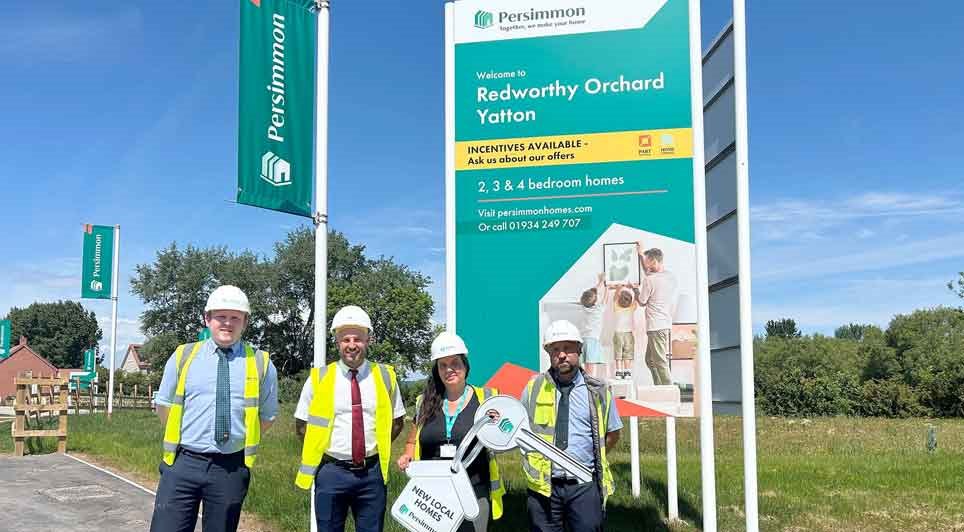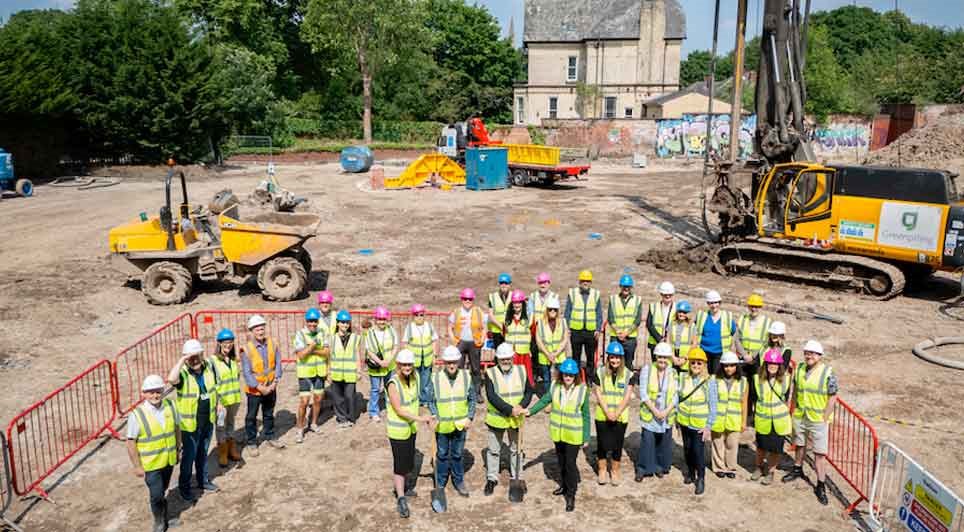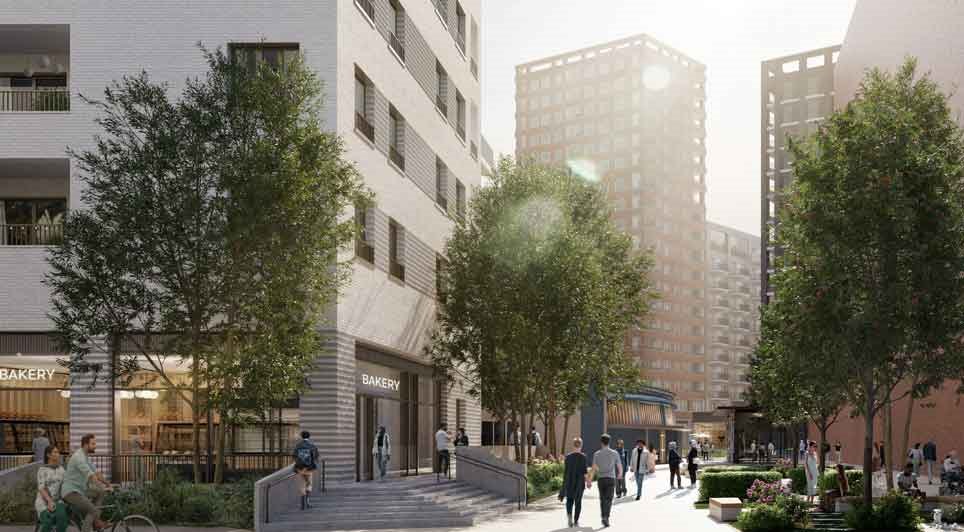The Prime Minister has revealed an estimated £400 million will be provided for removing dangerous cladding on council and housing association high-rise buildings.
Speaking during PM's question time on Wednesday, Theresa May revealed the Government will foot the bill for the removal and replacement of Grenfell-type cladding on tower blocks.
The PM said: "Councils and housing associations must remove dangerous cladding quickly, but paying for these works must not undermine their ability to do important maintenance and repair work.
"I have worked closely with my right honourable friends the chancellor and the housing secretary, and I can today confirm that the Government will fully fund the removal and replacement of dangerous cladding by councils and housing associations, estimated at £400 million. The Housing Secretary will set out further details later this week."
The PM's pledge was made on the eve of the publication of the Hackitt Review, which was unveiled today, 17 May.
In her Review into Buildings Regulations, which was commissioned in July last year, Dame Judith Hackitt said that fundamental reform is needed to improve building safety, as well as to rebuild trust among residents of high-rise buildings in the wake of the Grenfell Tower tragedy.
Calling the system "far too complex", Dame Judith said: "It lacks clarity as to who is responsible for what, and there is inadequate regulatory oversight and enforcement.
"Simply adding more prescription or making amendments to the current system, such as restricting or prohibiting certain practices, will not address the root causes."
The report sets out a number of key issues underpinning the system failure, including;
• Ignorance – regulations and guidance are not always read by those who need to, and when they do the guidance is misunderstood and misinterpreted
• Indifference – the primary motivation is to do things as quickly and cheaply as possible rather than to deliver quality homes which are safe for people to live in. When concerns are raised, by others involved in building work or by residents, they are often ignored. Some of those undertaking building work fail to prioritise safety, using the ambiguity of regulations and guidance to game the system
• Lack of clarity on roles and responsibilities – there is ambiguity over where responsibility lies, exacerbated by a level of fragmentation within the industry, and precluding robust ownership of accountability
• Inadequate regulatory oversight and enforcement tools – the size or complexity of a project does not seem to inform the way in which it is overseen by the regulator. Where enforcement is necessary, it is often not pursued. Where it is pursued, the penalties are so small as to be an ineffective deterrent.
"The above issues have helped to create a cultural issue across the sector, which can be described as a 'race to the bottom' caused either through ignorance, indifference, or because the system does not facilitate good practice," Dame Judith Hackitt writes.
"There is insufficient focus on delivering the best quality building possible, in order to ensure that residents are safe, and feel safe."
Overall, the report finds that a new regulatory framework for higher-risk residential buildings is required to improve building safety and ensure that residents are safe. In addition, it sets out an ambitious vision for a new framework which will improve standards for both new and existing buildings, with many of the ideas proposed could be applied to a wider range of buildings and aim to drive change more broadly.
More than 50 recommendations are set out in the review as to how the government can deliver a more robust regulatory system for the future, including;
• a less prescriptive, outcomes-based approach to the regulatory framework to be overseen by a new regulator that can drive the right behaviours
• clearer roles and responsibilities throughout the design and construction process and during occupation, to ensure real accountability for building safety
• residents to be consulted and involved in decisions affecting the safety of their home and listened to if they have concerns
• a more rigorous and transparent product testing regime and a more responsible marketing regime
• industry to lead on strengthening competence of all those involved in building work and to establish an oversight body
Brian Berry, Chief Executive of the Federation of Master Builders, said some of the recommendations "must be taken as a blueprint for the wider industry".
"In particular, the industry as a whole needs to develop a comprehensive approach to competence," he said.
"There is an opportunity here for the whole industry to step up and ensure we have adequate levels of competence across the sector. Without this, significant parts of our industry will continue to be plagued by incompetent and unprofessional outfits."
To view the Review into Buildings Regulations, visit here.
(LM/MH)
Construction News
17/05/2018
Govt Will Pay £400m Bill To Remove Grenfell-Type Cladding


13/06/2025
A vital piece of Peak District railway infrastructure is set to receive a major upgrade this summer, as Network Rail announces a £7.5 million investment into one of Chapel Milton's iconic twin Victorian viaducts.
The 160-year-old, 15-arch structure plays a critical role in the UK's freight network,

13/06/2025
Morgan Sindall Construction has revealed plans to expand its operations in South Yorkshire, building on its strong delivery record in West Yorkshire and aligning with the goals of the newly launched Great North initiative.
Backed by northern regional mayors, the Great North initiative aims to unloc

13/06/2025
Construction has officially commenced on the new Children's Cancer Centre (CCC) at Great Ormond Street Hospital for Children (GOSH).
Led by long-term design partner BDP, the new centre is one of the most ambitious projects in GOSH's history. The firm is overseeing architecture, landscape, engineeri

13/06/2025
The developer behind the Redworthy Orchard scheme in Yatton has handed over the first homes to a local housing association as part of a wider plan to provide affordable housing in the area.
Persimmon Homes Severn Valley has transferred four new properties to Alliance Homes, a move set to ease press

13/06/2025
Wynne Construction has been awarded two major design and build contracts worth over £20 million by Adra to deliver nearly 100 new social homes across North Wales.
Construction is already underway at the first site on Berse Road, Wrexham, where Wynne began work in March on a £9 million, 47-home soci

13/06/2025
Great Places Housing Group has officially broken ground on its landmark £37 million LGBTQ+ majority Extra Care housing scheme in Whalley Range, marking the start of construction during Pride Month.
The scheme, hailed as the UK's first purpose-built Extra Care development of its kind, is being deliv

13/06/2025
Henry Boot PLC has announced that its property investment and development arm, HBD, has completed the sale of TWO45, a multi-let industrial-led business park in Skelmersdale, to a European real estate developer for £9.5 million.
Located on a 10-acre site just minutes from the M58 and M6 motorways,

13/06/2025
Clowes Developments has announced the successful letting of Unit 5A, a newly completed 27,000 sq ft industrial unit at Stud Brook Business Park, to Shawpak Ltd, a pioneering manufacturer of medical device packaging machinery.
Founded in Derby in 2013, Shawpak Ltd designs and produces a unique range

13/06/2025
The Hill Group and Legal & General (L&G) have announced a new partnership to deliver 200 affordable homes as part of the first phase of the £450 million City Centre South regeneration scheme in Coventry.
This marks the first time the two organisations have collaborated on a major residential devel

13/06/2025
The historic South Crofty tin mining project in Pool, Cornwall, is set to receive a significant boost after being awarded £4,190,500 through the Cornwall and Isles of Scilly Good Growth Programme, marking the largest single private sector investment by the programme to date.
Delivered by Cornwall C
 UK
UK Ireland
Ireland Scotland
Scotland London
London











